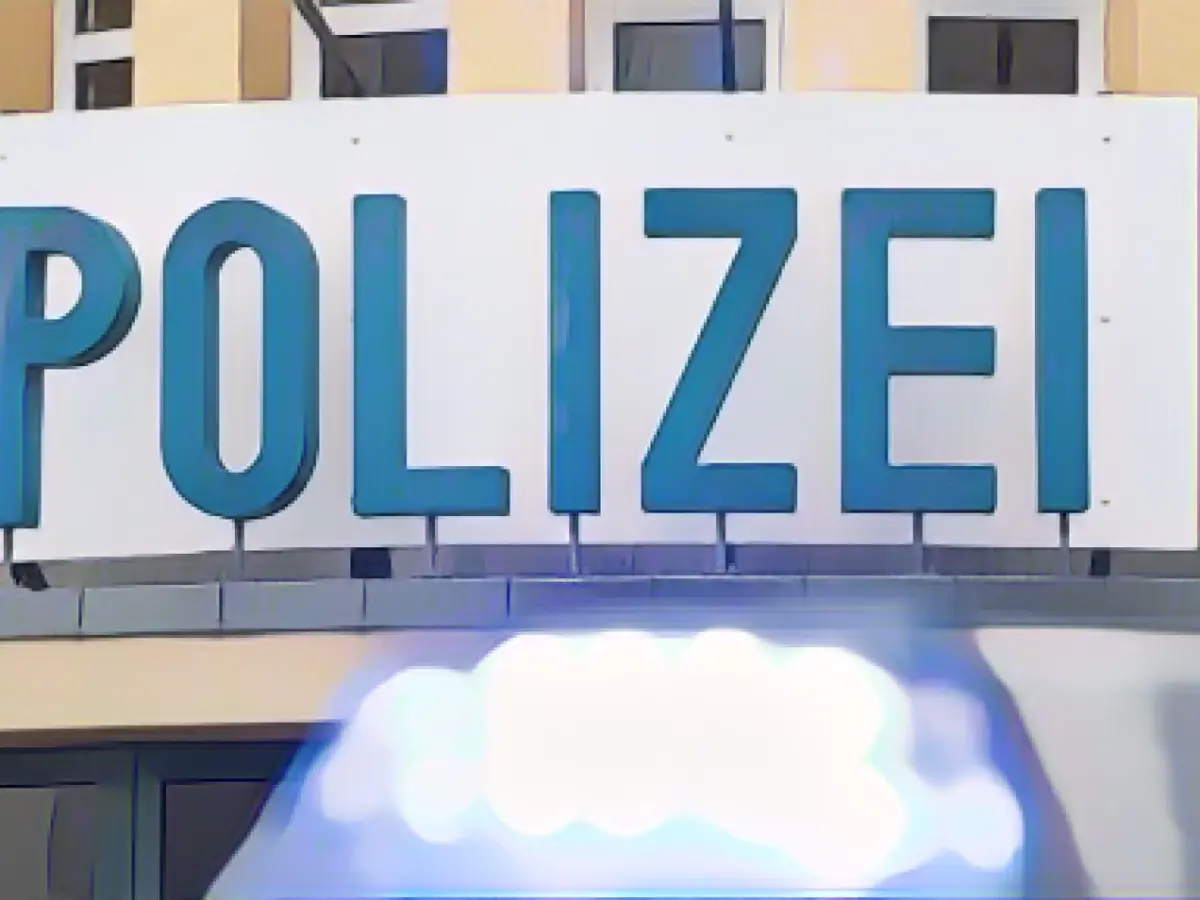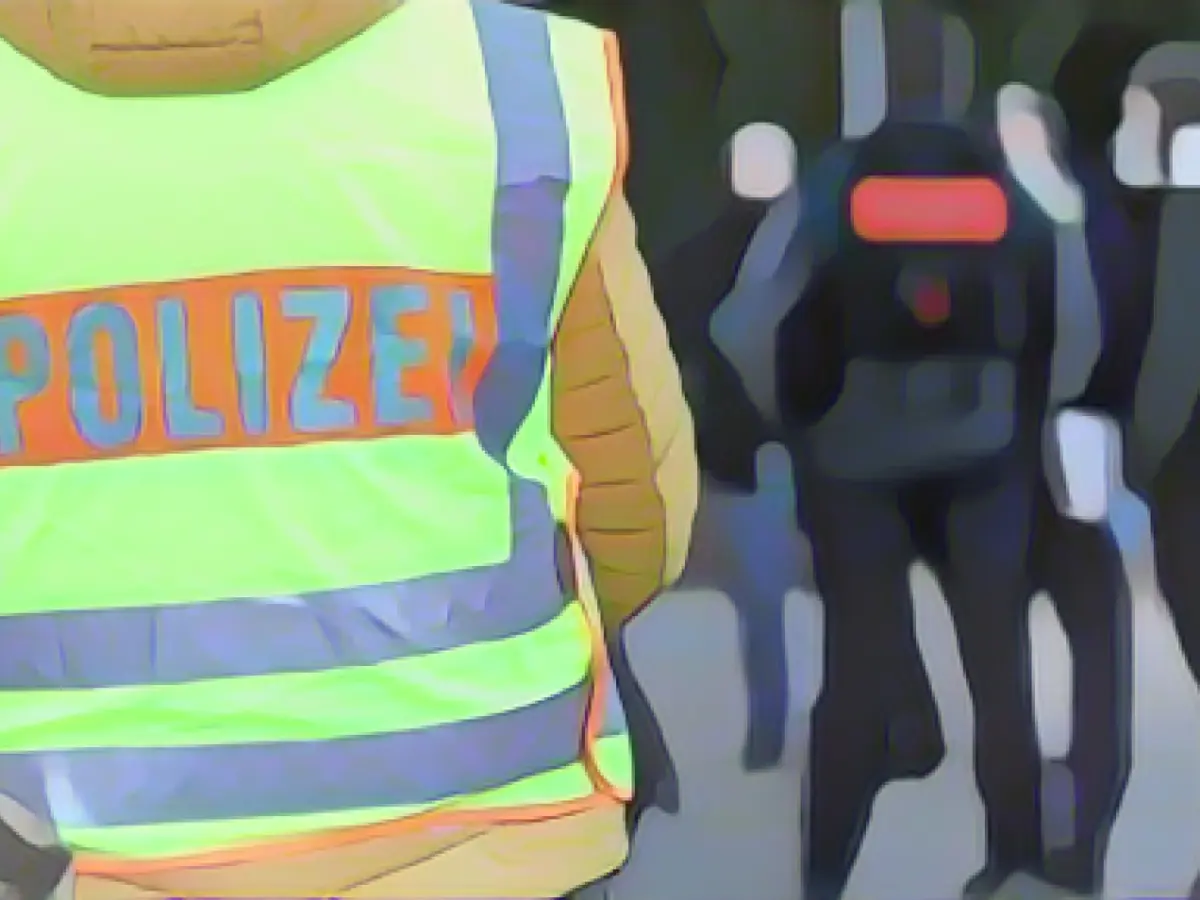Title: Suspect in Unintentional Refugee Shelter Blaze in Wassertrüdingen Arrested
After a peculiar incident involving an intentionally set fire at an empty refugee accommodation in Wassertrüdingen, Middle Franconia, German authorities apprehended the alleged perpetrator. During an interrogation, a 33-year-old local confessed to the crime, as confirmed by the Central Franconia police headquarters on Thursday.
The arrestee has maintained a tight-lipped stance concerning his motivations, with the Ansbach public prosecutor's office reporting no associations with right-wing extremist organizations. The investigation remains in progress.
The initial warrant requested the individual's provisional detention for arson due to incriminating evidence discovered post-incident, including camera footage and exhaustive searches. Subsequent to the November 23 incident, two containers, a tent, and a substantial portion of the accommodation sustained damage, amounting to approximately 50,000 euros in damages. Despite the incident, no casualties were reported.
Relief and Regulations
The subsequent fire at the refugee shelter in Wassertrüdingen has ignited concerns regarding criminal activity within the district of Ansbach. Concurrently, the public prosecutor's office is closely monitoring suspected arson cases at various refugee accommodations across Bavaria. This heightened vigilance is in response to growing tensions, as well as heightened distrust and anxieties in the affected community.
Local and state authorities have vowed to increase security measures in the Middle Franconia district, including reinforcements to refugee accommodations. This includes enhanced monitoring via surveillance and fire safety measures to safeguard the well-being of residents.
Contextualizing the Incident
The fire at the refugee shelter in Wassertrüdingen highlights the broader societal issues and escalating tensions that have plagued Germany recently. The past few years have witnessed numerous attacks and foiled plans associated with extremist ideologies, resulting in heated debates and an underlying sense of unease within the nation.
Among these incidents, the Christmas market attack in Magdeburg and the stabbing rampage in Solingen underscore the magnitude of the challenge. Although not directly connected to the arson case at hand, these events shed light on the broader context of extremism, which could potentially influence future occurrences.
In this regard, German authorities have an essential role in promptly and effectively addressing any potential threats to maintain public safety and welfare. To this end, they have implemented several strategies and measures to strengthen security at refugee accommodations.
Security Measures and Enhancements
Providing additional security and safety to refugee accommodations is of paramount importance in light of the growing concerns regarding criminal activities. The German authorities have hence taken a multi-pronged approach aimed at increasing border control efforts, bolstering police presence, enhancing fire safety protocols, imposing stricter security regulations, collaborating with neighboring countries, and counteracting extremist activities.
- Increased Border Controls:
- For the next six months, temporary border checks at all German land borders will be extended to reduce irregular migration and curtail migrant smuggling. This goal is to minimize the influx of individuals who might pose a security risk to refugee accommodations.[1]
- Enhanced Police Presence:
- The Federal Police will continue conducting border checks flexibly, tailoring their response to the security situation. This includes augmenting patrols and surveillance around refugee accommodations to dissuade potential arson attacks and extremist activities.[1]
- Improved Fire Safety Measures:
- Following the arson incident at a refugee shelter in Friedrichshain-Kreuzberg, authorities may have conducted a post-incident review of fire safety procedures at similar establishments. This could comprise regular inspections, updated emergency response plans, and increased fire safety equipment.[2]
- Enhanced Security Protocols:
- Refugee shelters may be temporarily rendered uninhabitable and residents relocated to emergency shelters after arson incidents to prioritize safety and security measures. This is an illustration of immediate action taken to prevent further incidents.[2]
- Legislative Actions Against Extremism:
- German authorities have enacted revised legislation to facilitate deportation of foreigners accused of terror-related crimes, which includes penalties for promoting or celebrating acts of terrorism.[3]
- Monitoring and Counter-Terrorism Efforts:
- Germany focuses on improving its counter-terrorism capabilities through joint operations at the Joint Counter-Terrorism Center and the Center for Information Technology of Security Authorities.[3]
- Community Engagement and Support:
- Authorities cooperate with neighboring countries and adhere to European regulations to ensure refugee accommodations are secure and well-managed. Social advice services and supportive resources for refugees may also be provided, although funding measures for these programs have been gradually decreased, potentially exacerbating tensions.[4]
- Addressing Far-Right Extremism:
- German authorities are tackling far-right extremism through enhanced vetting procedures for military recruits and strict measures aimed at curbing right-wing extremist activities. Efforts also involve combating extremist propaganda and violent attacks targeted at refugee shelters and migrant reception centers.[5]
These efforts collectively aim to solidify the safety and security of refugee accommodations by reducing the risk of arson and extremist activities while addressing the underlying issues contributing to these incidents.








